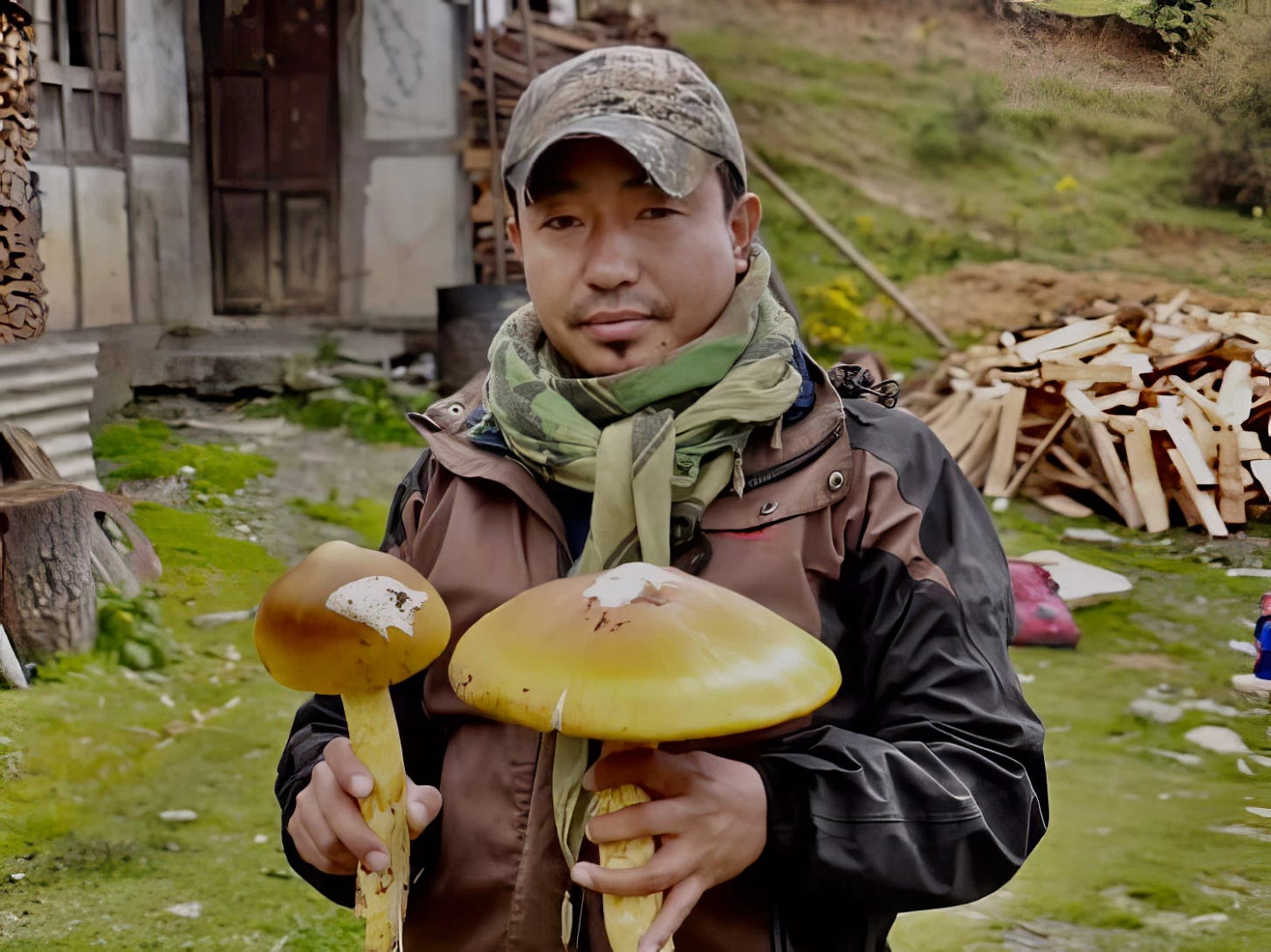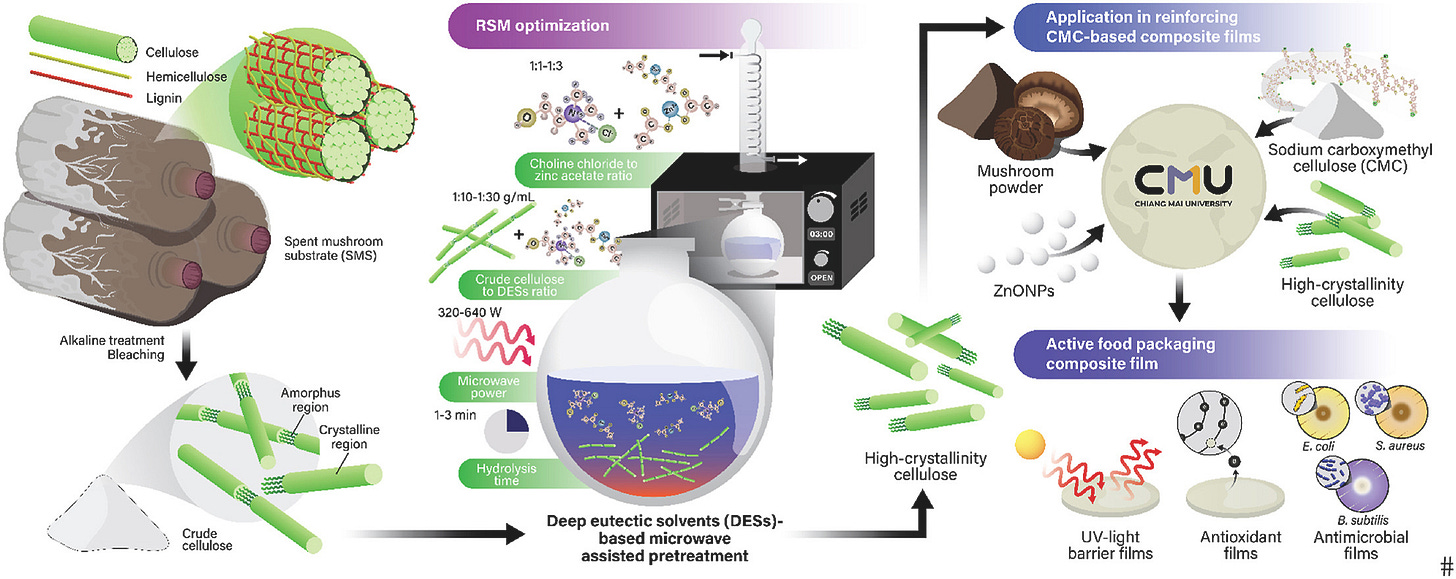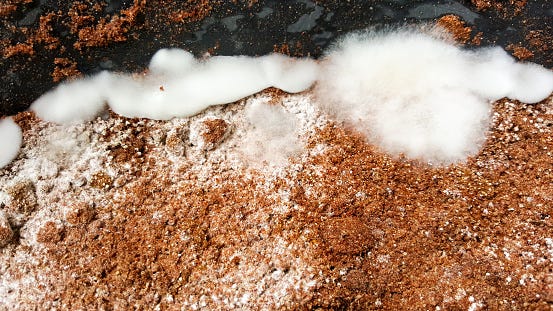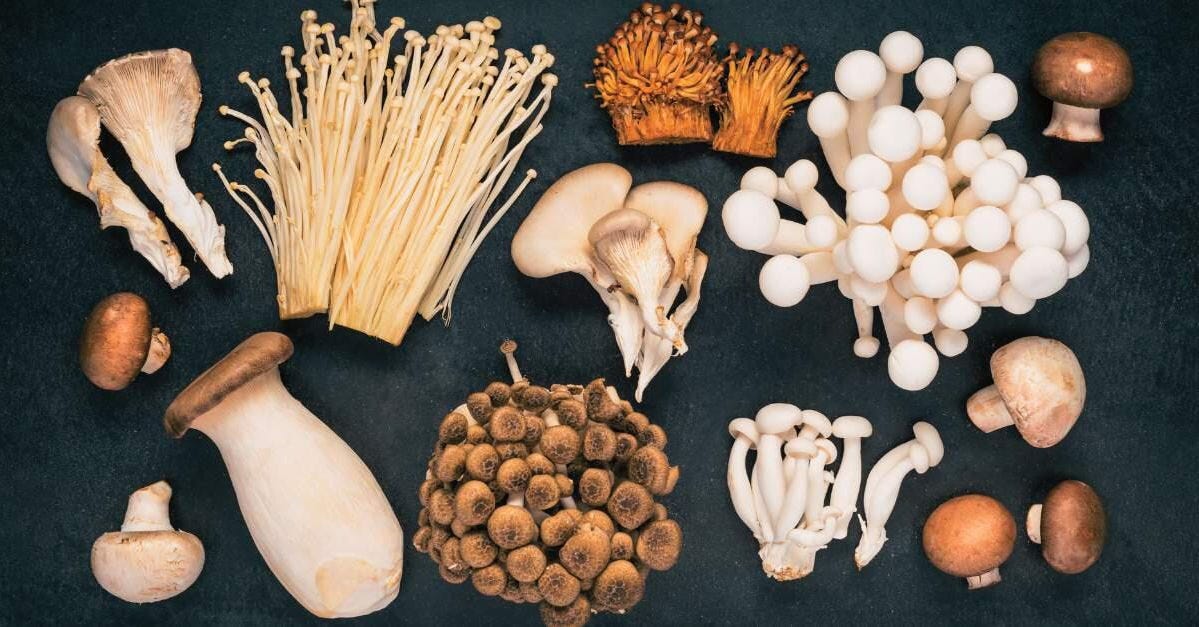🇧🇹 Hy-five: Bhutan Mushrooms, Ferment'Up, Fungal Biodegradable Films, Industrial Enzymes, Functional Mushrooms & Clinical Research
Sporadic round-up of mycological research and industry news.
Hello dear fungi enthusiast,
Bhutan, known for its GHP or Gross Happiness Product, pristine forests, sacred mountains, and deep-rooted traditions, is home to an astonishing fungal biodiversity. With over 500 documented species—and many more yet to be identified—the country’s mushrooms are central to its cuisine, medicine, and conservation efforts. British Designer, photographer and amateur forager Peter Roden and Bhutanese photographer guide Ugyen Wangchuk founded Bhutan Mushroom Tours, an immersive travel experience that blends foraging, photography, conservation, and cultural exploration.
Beyond offering an unforgettable adventure, Bhutan Mushroom Tours aims to raise awareness about fungi’s ecological importance. Often overlooked in conservation efforts, fungi play a critical role in soil health, forest regeneration, and biodiversity support.
Through responsible ecotourism, the tour hopes to promote fungal conservation, support local communities, and foster a deeper appreciation for Bhutan’s extraordinary natural heritage.
Learn more about Bhutan Mushroom Tours.
#1 Spent Mushroom Substrate: A Sustainable Ingredient for Next-Generation Food Packaging
The global mushroom industry is growing rapidly, with production projected to reach 24 million tonnes by 2028. But for every kilogram of mushrooms harvested, 3.5 to 5 kg of spent mushroom substrate (SMS) is discarded. This organic waste—composed of cellulose, hemicellulose, and lignin—typically ends up in landfills, where it contributes to methane emissions, or is incinerated, releasing air pollutants. With 104 million tonnes of mushroom waste expected by 2026, finding a way to repurpose SMS is critical.
A study published in the Journal of Agriculture and Food Research proposes a novel use for SMS: converting it into reinforced biodegradable films for food packaging.
2# Turning Food Waste into High-Value Natural Ingredients
The food industry generates massive amounts of by-products—fruit peels, grape pomace, and spent grains, to name a few. In France, a Toulouse-based startup, Ferment'Up, is taking a different approach: using fermentation to transform these leftovers into high-value ingredients.
Ferment'Up, founded by biotechnologist Ninna Granucci, applies solid-state fermentation to food industry by-products. The startup sources discarded ingredients such as tomato skins and seeds from sauce production, grape skins from wineries, and apple remnants from juice processing. Instead of being wasted, these materials undergo fermentation, which removes bitterness, enhances umami flavours, and increases digestibility.
3# Turning Rice Bran Waste into Industrial Enzymes with Filamentous Fungi
Rice is the second most cultivated crop globally, generating 72.6 million metric tonnes of rice bran annually—most of which is discarded or used as low-value animal feed. But what if this underutilised by-product could become a resource for sustainable enzyme production? A recent study in Journal of Fungi explores how filamentous fungi can convert rice bran into industrially valuable enzyme cocktails.
Researchers at the Instituto de Agroquímica y Tecnología de Alimentos (IATA-CSIC) in Spain isolated 16 fungal strains from rice bran, focusing on those from the Aspergillus, Penicillium, and Mucor genera. These fungi were screened for their ability to produce enzymes that break down plant materials—particularly cellulases and xylanases, key players in biofuel production, food processing, and textiles.
4# Functional Mushrooms and The Barriers For Clinical Research
From chocolate bars, to gummies, sparkling beverages, and supplements, functional mushrooms are showing up everywhere. But despite their growing popularity, many skeptics claim scientific research has not kept pace with the hype. While functional mushrooms are backed by centuries of traditional use and a growing body of studies, critics suggest that large-scale clinical trials are severely lacking.
While this may be true when comparing them to modern pharmaceuticals, natural therapeutics like mushrooms encounter unique challenges in the landscape of clinical research. This article, by Timo Mendez, founder of mushroomclinicaltrials.com explores the barriers that have prevented functional mushrooms from receiving the same level of clinical validation as pharmaceutical drugs and why the expectations of some critics are not realistic when it comes to natural products.
Need support? Maybe we can help.
MycoStories works with founders, investors, industry leaders, and research institutions.
Leveraging a global network of subject-matter experts, MycoStories helps founders scale their business, guides investors and industry leaders in identifying high-potential opportunities, and empower researchers to translate their work into real-world applications.
Don’t hesitate to reach-out. If we can’t help, someone within the community will. ✊🏽









